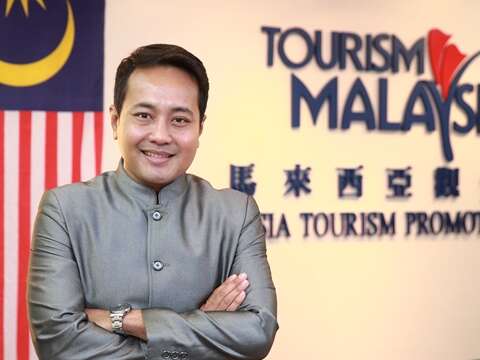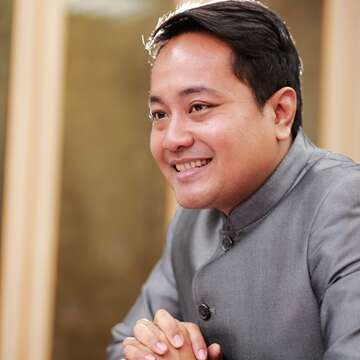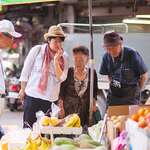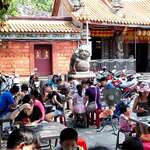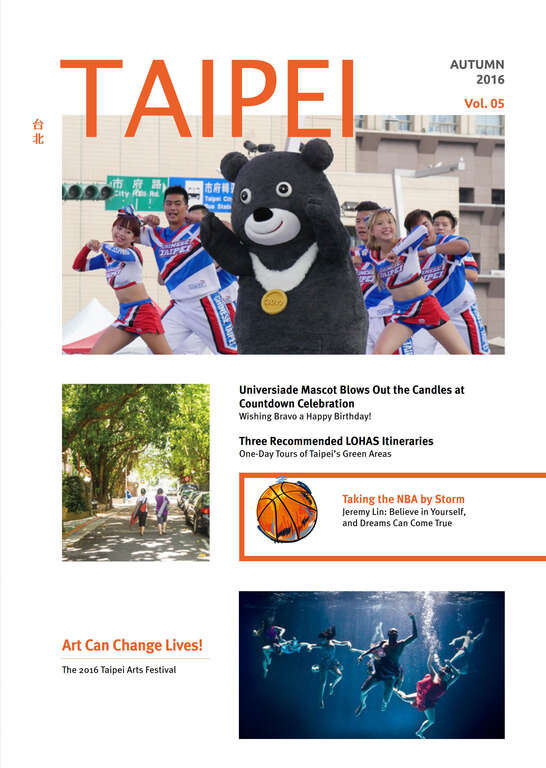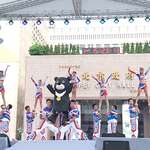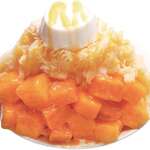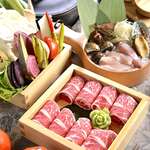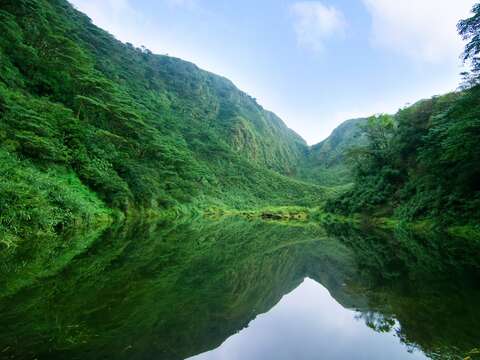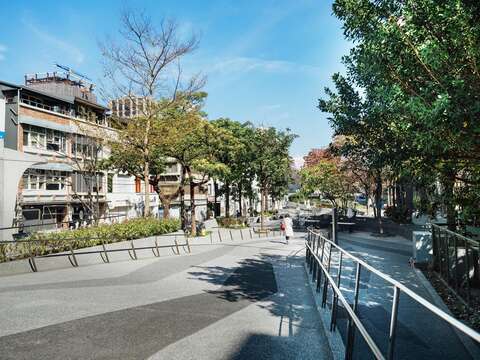Post date:2016-09-29
1497
Malaysia: A Place of Diversity That Welcomes All
Sharing Its Muslim Friendly Tourism Experience With Taiwan
Article _ Cheryl Robbins
Photos _ You Jiahuan
For the last two and a half years, Ahmad Faisal has served as director of the Malaysia Promotion Board Taiwan ( 馬來西亞觀光局在台辦事處). He is tasked with promoting Malaysia’s tourism to the Taiwan market. As a believer in the power of networking, he is also a willing participant in the sharing of Malaysia’s successful tourism experience with Taiwan, especially in the area of Muslim-friendly tourism.
Born and raised in a small town in the state of Selangor, Faisal longed to travel and see the world. Thus, at a young age he began his career at the Malaysia Tourism Board as a tourism officer. For the past 15 years, he has worked his way up the ranks to his current position. When looking back on his decision to enter the tourism industry, Faisal enthusiastically offers up his own definition of tourism: happiness. “You meet with new people every day. You experience travel and different cultures and carry out networking. It is a fun industry.” It also suits his personality well, as he explains, “I don’t like to stay in one place, such as in an office, and I quickly become bored if I have to do the same thing over and over again. Thus, this is the best career for me.”
Although an avid traveler, he had not had the opportunity to visit Taiwan before his posting to Taipei in January of 2014. He found that it differed greatly from his expectation, but pleasantly so. “It is very convenient and very advanced. It’s a good place to travel and have a career. It’s a country with a good future.”
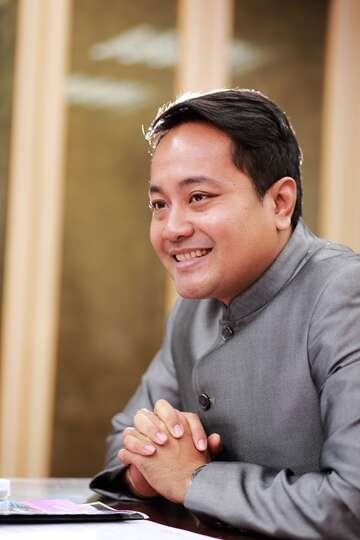
▲ (Photo: You Jiahuan)
Studying the Language
Opened the Doors to Travel in Taiwan
Although Faisal enjoys living in Taipei, he admits that there were a few challenges at first. He had not studied Mandarin before coming to Taiwan and found it difficult to travel around the island and to buy things that he needed on his own. He decided to hire a private tutor. After studying for two years he can now carry out basic communication, which allows him to explore Taiwan during his free time, something he enjoys very much.
He is a self-professed nature lover, and is especially fond of hiking and diving. Thus, Hualien (花蓮) and Taitung (台東) have become his favorite destinations. He has attended the hot air balloon festival on the Luye Gaotai (鹿野高台) in Taitung County and has ridden the rapids in a rubber raft along the Xiuguluan River (秀姑巒 溪) in Hualien County. The indigenous communities along the east coast remind him of the ethnic communities of Sabah and Sarawak in terms of culture, language and arts and handicrafts. In addition, just as the Amis tribe holds its harvest festival in July and August in eastern Taiwan, there are similar events in Sabah and Sarawak in May and June. As Taiwan is considered the origin of the Austronesian language family, the largest language family in the world, in terms of distribution, and Malaysia is within that distribution, there are relationships between Taiwan’s indigenous peoples and some of the ethnic minority groups of Sabah and Sarawak. This has inspired him to learn more about Taiwan’s indigenous culture. He sees these relationships as a bridge for mutual promotion and exchanges between the two countries.
As he is based in Taipei, and, thus, is where he spends most of his time, he does have his favorite places in this city. True to his nature loving spirit, Yangmingshan National Park tops his list. He also includes the Shilin Night Market for its diversity of street foods and Ximending for its diversity of shopping options.
Faisal says that Malaysian tourists tend to focus on culture and nature when planning a trip overseas. They also like to try new foods and Taiwan is blessed in this aspect, especially in terms of street foods. Taipei is a good draw because it has good public transportation and the people are friendly. The majority of Malaysia’s population is Muslim, as is Faisal. He has discovered that there are many halal restaurants in Taipei that serve a variety of flavors, such as from the Middle East, Thailand, Indonesia and India. Outside of Taipei there are few certified halal restaurants. However, he expects this situation to improve over time with the central government’s aggressive efforts to create and promote a Muslim-friendly environment.
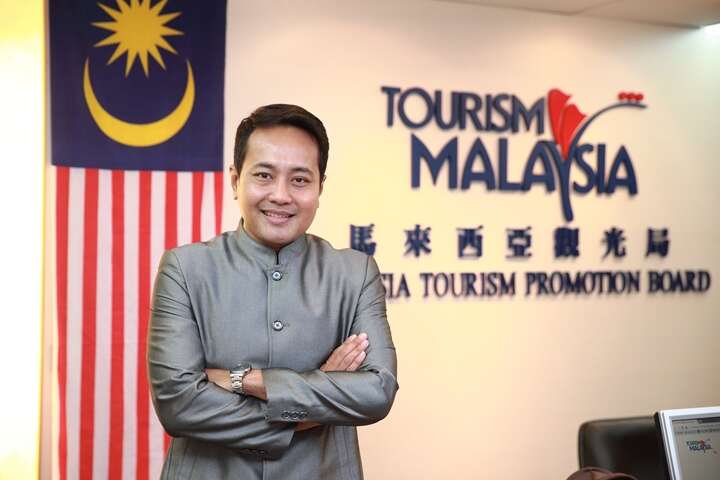
▲ Faisal says that when he promotes Malaysia to Taiwanese travelers, he is not just selling a destination, but an experience. (Photo: You Jiahuan)
Learning From the Malaysian Experience
Taiwan’s government has been keen to learn from Malaysia’s experience in serving and attracting Muslim tourists, as for several years an online survey conducted by a Singapore- based travel portal has shown Malaysia to be the world’s top Muslim- friendly destination, among 50 countries analyzed.
Faisal notes that he and other Malaysian experts have been happy to work with Taiwan’s Tourism Bureau (觀光局) and have participated in the organizing of forums to provide advice on how to market Taiwan to Muslim tourists from Malaysia, such as the types of facilities that Muslim tourists want and need. “We have shared this experience with the Tourism Bureau during last year’s ITF (International Travel Fair). And, we work closely with the Taiwan Tourism Bureau and the Taipei City Government in this effort,” he says.
Most likely, the first aspect of Muslim tourism that comes to mind is food, especially with the significant and recent increases in halal-certified restaurants in Taipei. Faisal notes that halal is a brand and an assurance of safety, quality and humane treatment of animals. Most restaurants in Malaysia serve halal food, even the international fast-food franchises, which are all certified by the Department of Islamic Development Malaysia ( JAKIM), Malaysia’s sole halal certification body. This certification body processes applications and carries out evaluations to ensure that there is compliance in all areas. In addition, Faisal notes that most hotels in Malaysia offer Muslim guests information about qibla (prayer) direction, as well as prayer mats, in their rooms. Moreover, travel agencies provide tour packages that accommodate religious needs such as prayer stops during tours and halal meals.
Faisal says that while the number of halal restaurants and prayer rooms are increasing in Taipei, there are not yet enough outside of the capital city and more effort should be made in these areas. He also explains that in Malaysia the emphasis is on providing comfort to all travelers, Muslims and non-Muslims alike. All facilities and certifications are universal and can be enjoyed by all. Non-Muslim tourists are encouraged to experience the country’s Muslim culture and cultural events. They can even join halal gastronomy tours. To gain a deeper understanding, tourists can experience a homestay with a Muslim family. They can live and work with a family and participate in community activities, as well as learn how to cook traditional dishes and farm using traditional methods.
Taiwan is an Important
Tourism Market for Malaysia
Malaysia and Taiwan, although similar in terms of indigenous culture, are unique in terms of religion, architecture and technology. In addition, while both countries boast cultural diversity, Malaysia’s population includes the major Malay, Chinese, and Indian ethnicities, as well as many other ethnic groups.
Faisal says that when he promotes Malaysia to Taiwanese travelers, he likes to emphasize the word “experience”. He adds that, “I am not selling a destination. I am selling an experience. The key to any great trip is the experience.” The current trends among Taiwanese travelers are to visit the beautiful islands along Malaysia’s eastern coast, as well as the naturally diverse state of Sabah and Sarawak. They also like to shop in the country’s modern malls and those traveling with children prefer to visit theme parks such as Legoland and Hello Kitty Town. Of course, Taiwanese are also food lovers and he recommends Penang and Kuala Lumpur for foodies. Just this year, Penang was named one of the world’s best food destinations. Faisal explains that, “The dishes in Malaysia are the result of Malay, Indian and Chinese influences. Thus, there is a symphony of flavors. This is one of Malaysia’s advantages.”
Taiwan is currently an emerging tourism market for Malaysia. Last year, 285,000 Taiwanese visited Malaysia. This year, for the period between January and May there was a 13 percent increase over the previous year. Faisal attributes this to better connectivity by air. More and more direct flights are being offered between Taiwan and various destinations in Malaysia. He says that, “This shows how important this market is to Malaysia.” This connectivity issue is something that he has been personally working very hard to improve, by talking with airlines to offer more flights to more destinations, and flights are now available to Kota Kinabalu. These are part of the efforts towards achieving Malaysia’s target of 36 million tourist arrivals and RM168 billion in tourism receipts by 2020, making tourism a very important part of that country’s economy, and accumulating experience that can be shared with other nations.
With its cultural, religious, food and natural diversity, there are unique and exciting experiences awaiting all those who travel to Malaysia. Time to pack your bags!
Sharing Its Muslim Friendly Tourism Experience With Taiwan
Article _ Cheryl Robbins
Photos _ You Jiahuan
For the last two and a half years, Ahmad Faisal has served as director of the Malaysia Promotion Board Taiwan ( 馬來西亞觀光局在台辦事處). He is tasked with promoting Malaysia’s tourism to the Taiwan market. As a believer in the power of networking, he is also a willing participant in the sharing of Malaysia’s successful tourism experience with Taiwan, especially in the area of Muslim-friendly tourism.
Born and raised in a small town in the state of Selangor, Faisal longed to travel and see the world. Thus, at a young age he began his career at the Malaysia Tourism Board as a tourism officer. For the past 15 years, he has worked his way up the ranks to his current position. When looking back on his decision to enter the tourism industry, Faisal enthusiastically offers up his own definition of tourism: happiness. “You meet with new people every day. You experience travel and different cultures and carry out networking. It is a fun industry.” It also suits his personality well, as he explains, “I don’t like to stay in one place, such as in an office, and I quickly become bored if I have to do the same thing over and over again. Thus, this is the best career for me.”
Although an avid traveler, he had not had the opportunity to visit Taiwan before his posting to Taipei in January of 2014. He found that it differed greatly from his expectation, but pleasantly so. “It is very convenient and very advanced. It’s a good place to travel and have a career. It’s a country with a good future.”

▲ (Photo: You Jiahuan)
Studying the Language
Opened the Doors to Travel in Taiwan
Although Faisal enjoys living in Taipei, he admits that there were a few challenges at first. He had not studied Mandarin before coming to Taiwan and found it difficult to travel around the island and to buy things that he needed on his own. He decided to hire a private tutor. After studying for two years he can now carry out basic communication, which allows him to explore Taiwan during his free time, something he enjoys very much.
He is a self-professed nature lover, and is especially fond of hiking and diving. Thus, Hualien (花蓮) and Taitung (台東) have become his favorite destinations. He has attended the hot air balloon festival on the Luye Gaotai (鹿野高台) in Taitung County and has ridden the rapids in a rubber raft along the Xiuguluan River (秀姑巒 溪) in Hualien County. The indigenous communities along the east coast remind him of the ethnic communities of Sabah and Sarawak in terms of culture, language and arts and handicrafts. In addition, just as the Amis tribe holds its harvest festival in July and August in eastern Taiwan, there are similar events in Sabah and Sarawak in May and June. As Taiwan is considered the origin of the Austronesian language family, the largest language family in the world, in terms of distribution, and Malaysia is within that distribution, there are relationships between Taiwan’s indigenous peoples and some of the ethnic minority groups of Sabah and Sarawak. This has inspired him to learn more about Taiwan’s indigenous culture. He sees these relationships as a bridge for mutual promotion and exchanges between the two countries.
As he is based in Taipei, and, thus, is where he spends most of his time, he does have his favorite places in this city. True to his nature loving spirit, Yangmingshan National Park tops his list. He also includes the Shilin Night Market for its diversity of street foods and Ximending for its diversity of shopping options.
Faisal says that Malaysian tourists tend to focus on culture and nature when planning a trip overseas. They also like to try new foods and Taiwan is blessed in this aspect, especially in terms of street foods. Taipei is a good draw because it has good public transportation and the people are friendly. The majority of Malaysia’s population is Muslim, as is Faisal. He has discovered that there are many halal restaurants in Taipei that serve a variety of flavors, such as from the Middle East, Thailand, Indonesia and India. Outside of Taipei there are few certified halal restaurants. However, he expects this situation to improve over time with the central government’s aggressive efforts to create and promote a Muslim-friendly environment.

▲ Faisal says that when he promotes Malaysia to Taiwanese travelers, he is not just selling a destination, but an experience. (Photo: You Jiahuan)
Learning From the Malaysian Experience
Taiwan’s government has been keen to learn from Malaysia’s experience in serving and attracting Muslim tourists, as for several years an online survey conducted by a Singapore- based travel portal has shown Malaysia to be the world’s top Muslim- friendly destination, among 50 countries analyzed.
Faisal notes that he and other Malaysian experts have been happy to work with Taiwan’s Tourism Bureau (觀光局) and have participated in the organizing of forums to provide advice on how to market Taiwan to Muslim tourists from Malaysia, such as the types of facilities that Muslim tourists want and need. “We have shared this experience with the Tourism Bureau during last year’s ITF (International Travel Fair). And, we work closely with the Taiwan Tourism Bureau and the Taipei City Government in this effort,” he says.
Most likely, the first aspect of Muslim tourism that comes to mind is food, especially with the significant and recent increases in halal-certified restaurants in Taipei. Faisal notes that halal is a brand and an assurance of safety, quality and humane treatment of animals. Most restaurants in Malaysia serve halal food, even the international fast-food franchises, which are all certified by the Department of Islamic Development Malaysia ( JAKIM), Malaysia’s sole halal certification body. This certification body processes applications and carries out evaluations to ensure that there is compliance in all areas. In addition, Faisal notes that most hotels in Malaysia offer Muslim guests information about qibla (prayer) direction, as well as prayer mats, in their rooms. Moreover, travel agencies provide tour packages that accommodate religious needs such as prayer stops during tours and halal meals.
Faisal says that while the number of halal restaurants and prayer rooms are increasing in Taipei, there are not yet enough outside of the capital city and more effort should be made in these areas. He also explains that in Malaysia the emphasis is on providing comfort to all travelers, Muslims and non-Muslims alike. All facilities and certifications are universal and can be enjoyed by all. Non-Muslim tourists are encouraged to experience the country’s Muslim culture and cultural events. They can even join halal gastronomy tours. To gain a deeper understanding, tourists can experience a homestay with a Muslim family. They can live and work with a family and participate in community activities, as well as learn how to cook traditional dishes and farm using traditional methods.
Taiwan is an Important
Tourism Market for Malaysia
Malaysia and Taiwan, although similar in terms of indigenous culture, are unique in terms of religion, architecture and technology. In addition, while both countries boast cultural diversity, Malaysia’s population includes the major Malay, Chinese, and Indian ethnicities, as well as many other ethnic groups.
Faisal says that when he promotes Malaysia to Taiwanese travelers, he likes to emphasize the word “experience”. He adds that, “I am not selling a destination. I am selling an experience. The key to any great trip is the experience.” The current trends among Taiwanese travelers are to visit the beautiful islands along Malaysia’s eastern coast, as well as the naturally diverse state of Sabah and Sarawak. They also like to shop in the country’s modern malls and those traveling with children prefer to visit theme parks such as Legoland and Hello Kitty Town. Of course, Taiwanese are also food lovers and he recommends Penang and Kuala Lumpur for foodies. Just this year, Penang was named one of the world’s best food destinations. Faisal explains that, “The dishes in Malaysia are the result of Malay, Indian and Chinese influences. Thus, there is a symphony of flavors. This is one of Malaysia’s advantages.”
Taiwan is currently an emerging tourism market for Malaysia. Last year, 285,000 Taiwanese visited Malaysia. This year, for the period between January and May there was a 13 percent increase over the previous year. Faisal attributes this to better connectivity by air. More and more direct flights are being offered between Taiwan and various destinations in Malaysia. He says that, “This shows how important this market is to Malaysia.” This connectivity issue is something that he has been personally working very hard to improve, by talking with airlines to offer more flights to more destinations, and flights are now available to Kota Kinabalu. These are part of the efforts towards achieving Malaysia’s target of 36 million tourist arrivals and RM168 billion in tourism receipts by 2020, making tourism a very important part of that country’s economy, and accumulating experience that can be shared with other nations.
With its cultural, religious, food and natural diversity, there are unique and exciting experiences awaiting all those who travel to Malaysia. Time to pack your bags!
Gallery
:::
Popular articles
 TAIPEI QUARTERLY 2016 AUTUMN Vol.05
TAIPEI QUARTERLY 2016 AUTUMN Vol.05 Wishing Bravo a Happy Birthday! (TAIPEI QUARTERLY 2016 AUTUMN Vol.05)
Wishing Bravo a Happy Birthday! (TAIPEI QUARTERLY 2016 AUTUMN Vol.05) Jeremy Lin: Believe in Yourself, and Dreams Can Come True (TAIPEI QUARTERLY 2016 AUTUMN Vol.05)
Jeremy Lin: Believe in Yourself, and Dreams Can Come True (TAIPEI QUARTERLY 2016 AUTUMN Vol.05) Table Tennis Great Hung-Chieh Chiang Eyes Universiade Gold (TAIPEI 2016 AUTUMN Vol.05)
Table Tennis Great Hung-Chieh Chiang Eyes Universiade Gold (TAIPEI 2016 AUTUMN Vol.05) Three Recommended LOHAS Itineraries One-Day Tours of Taipei’s Green Areas (TAIPEI QUARTERLY TAIPEI 2016 AUTUMN Vol.05)
Three Recommended LOHAS Itineraries One-Day Tours of Taipei’s Green Areas (TAIPEI QUARTERLY TAIPEI 2016 AUTUMN Vol.05) Beautiful Forest Scenery Close to the Urban Center (TAIPEI QUARTERLY 2016 AUTUMN Vol.05)
Beautiful Forest Scenery Close to the Urban Center (TAIPEI QUARTERLY 2016 AUTUMN Vol.05)
 Malaysia: A Place of Diversity That Welcomes All (TAIPEI QUARTERLY 2016 AUTUMN Vol.05)
Malaysia: A Place of Diversity That Welcomes All (TAIPEI QUARTERLY 2016 AUTUMN Vol.05)